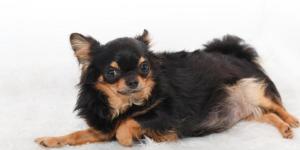What to Do After Dog Vaccination

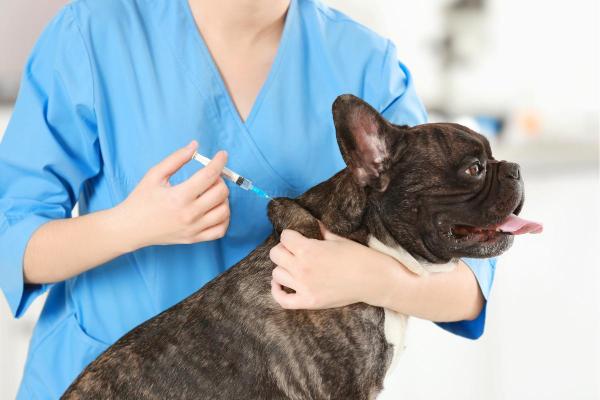

See files for Dogs
Vaccinations are a form of preventive medicine which can stop the spread of serious diseases within the canine community. They are recommended by veterinarians and many countries have mandatory vaccination laws for certain diseases. For example, many US states require rabies vaccinations. These vaccinations work by stimulating the animal's immune system against certain pathogens. This allows them to protect themselves on a cellular level when next exposed to said pathogens. Vaccines perform this function without causing harm to the dog, although it possible they can experience mild symptoms. On very rare occasions, negative reactions may occur, but the benefits far outweigh any risk.
At AnimalWised, we keep animal welfare at the fore by finding out what to do after dog vaccination. We look at how to safeguard their well-being, provide general aftercare and what special care puppies require.
Keep your dog in a quiet place
The process of taking a dog to the veterinarian and getting their shots can be a traumatic experience for some dogs. In addition, the physical effects of the vaccine can cause the dog to feel a little tired. For this reason, it is very important you prepare a quiet, comfortable and safe space for your dog. When they return home, you can bring them there to calm any nerves and ensure they feel secure.
On some occasions, it is possible for vaccinations to cause low-grade fever, vomiting, diarrhea or other mild symptoms. These can cause your dog to temporarily lose their appetite, although it should not last longer than 24 hours. Unless the vomiting is profuse, lasts longer than 24-48 hours or other worrying symptoms appear, you will not need to do anything.
To determine whether your dog has a fever, take a look at our article on how to tell if a dog has a fever without a thermometer.
Provide adequate hydration
All dogs need to be well dehydrated, but this is particularly important during vaccination after care. Ensure a bowl of fresh and clean water is available at all times. If your dog has symptoms of vomiting and/or diarrhea, providing water will help to avoid dehydration.
In some cases, the dog may be a little tired and weak. You can help hydration by providing wet food (if they still have their appetite) or even using an oral syringe. If doing the latter, ensure you only provide small amounts offered in frequent feedings. Providing too much water too quickly can increase the likelihood of vomiting.
Learn about the reasons why a puppy vomits and does not eat in our related article.
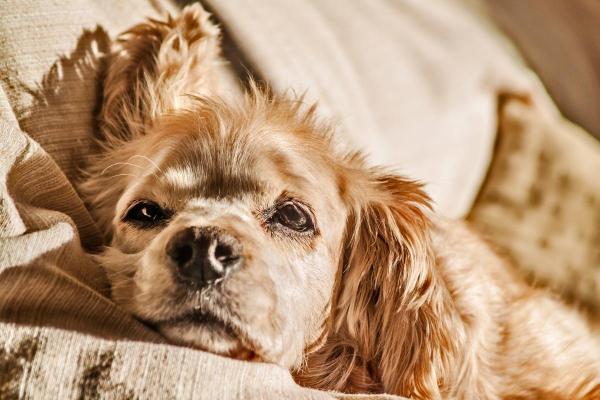
Try not to touch the injection site
As vaccines are administered into the layer of skin directly beneath the dermis, they can sometimes cause inflammation in the inoculation area. This can be accompanied by pain, so your dog will be uncomfortable if you pet them there. Try to avoid touching the injection site for at least a few days.
If you notice that a lump has also appeared in this area, it is usually a mild reaction to the vaccine. Although it may take a few days to disappear, it is usually not a cause for concern. If you have to administer injections on your own for any reason, you should know how to give a dog a shot under the skin safely.
Adapt their diet
If your dog does display any symptoms after vaccination, it is most common for them to experience some apathy. This can include a loss of appetite. For this reason, you may need to adapt their diet for a short time. You can provide more appetizing wet food or even create a homemade meal for them. These diets provide greater hydration than dry kibble, so they can also help ensure they have enough water.
Providing a more appetizing diet will help them to gain nutrition, but it is also emotionally beneficial. Especially if they dog has found the experience of going to the vet and getting their shots traumatic, giving them a delicious meal can help improve their mood. It also helps them to recognize that you have their best interests at heart, meaning it will help your bond together.
You will need to consider every factor when determining a vaccination schedule for your dog. Check out our article on whether it is safe to vaccinate a pregnant dog to learn more.
Avoid strenuous activities
As we mentioned before, it is important that your dog gets enough rest on the day of and the days after their vaccination. Avoiding intense activities such as long walks to best ensure your friend will recover without complications.
This does not mean you cannot walk a dog after vaccination. If they don't seem tired and are eager to go outside, opt for calmer walks. Choose quiet areas with little traffic. Once recovered, you can resume their normal walking routine.
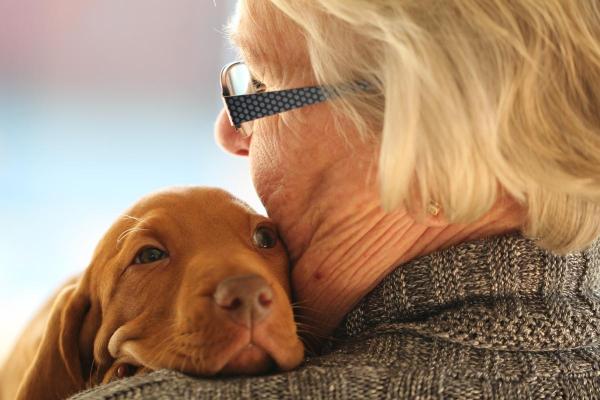
Pamper your dog
As referenced above, on the day of vaccination and even up to a few days after, your dog may feel tender. Help to minimize any anxiety in your dog by pampering them and showing them there is nothing to worry about. In addition to giving them appetizing food, surround them with their favorite toys, make them very comfortable and give them relaxing massages. However, do not force interaction if they want to be left alone for a while.
Do not give medication without prior prescription
If you notice that your dog is in pain, vomits, has diarrhea or displays any other type of problem, under no circumstances should you give them medication without the advice of a veterinarian. Doing so could cause serious damage to their body. The best thing to do is to call the veterinary center and explain the problem to a professional. They can provide reassurance and advise you if they do need any medication for their problem. They will also be able to indicate the correct type, dose and duration of medication to ensure the dog's well-being, if necessary.
Observe for any side effects
Vaccines do not usually have serious side effects in dogs. In rare cases, your dog's body may have a mild reaction to the stimulation of their immune system. If this occurs, you may be able to observe some of the following symptoms:
- Dyspnea: the dog cannot breathe properly.
- Hypoxia: the dog has an abnormally low amount of oxygen. This can happen because the dog's throat or snout has swollen and it is essential to go to the vet to prevent the dog from asphyxiating.
- Prolonged diarrhea or vomiting: if diarrhea and vomiting are frequent and of considerable quantity, it is best to go to the vet. The dog could become dehydrated or suffer from a more serious condition.
- Anaphylactic reaction: although this is a very rare occurrence, it could be possible that your dog has suffered an allergic reaction to the vaccine, resulting in anaphylactic shock. If you notice their face is swollen or they have difficulty breathing, do not hesitate to go to the ve. It is best to act as soon as possible as they could choke and die.
It should be noted that these side effects rarely appear after vaccination and that the benefits of vaccines outweigh any inconveniences that may arise. If they do experience such a symptom, do not hesitate to go to the vet. You can learn more about the pros and cons of vaccinating a dog with our article on the canine rabies vaccine.
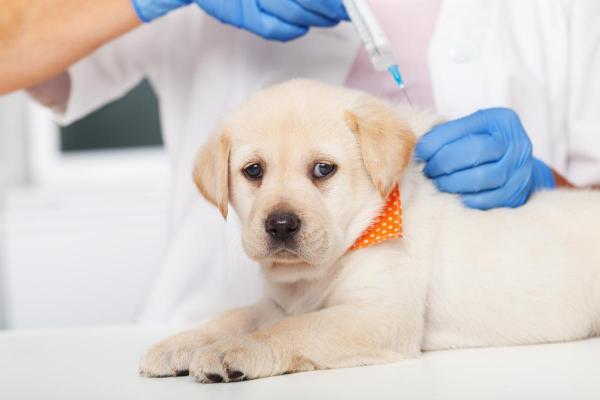
Special recommendations for puppies
If you are wondering what to do after dog vaccinations, it is important to consider whether they are a puppy. Generally speaking, puppies should receive their first shots aged between 6 and 8 weeks of life. Since they are so young, additional safety measures may be required. As it will take some time for the antibodies to build, there will be a short period when they are not protected. In these cases, you will need to follow these guidelines:
- Do not mix with other dogs that are not yet vaccinated.
- Avoid sidewalks, parks or places frequented by unknown dogs.
- Take them out into the street in your arms without putting him on the ground at any time until they are fully protected by the vaccine.
By 17 weeks, your dog should be fully protected. After this time, you can take them out to the park and allow them to socialize with other dogs, but you will still need to be careful. If you know a dog is sick, it's best to keep him away because puppies can catch an illness more easily.
If you have not yet taken your dog for their shots, discover how to establish vaccination schedules for puppies and adult dogs.

This article is purely informative. AnimalWised does not have the authority to prescribe any veterinary treatment or create a diagnosis. We invite you to take your pet to the veterinarian if they are suffering from any condition or pain.
If you want to read similar articles to What to Do After Dog Vaccination, we recommend you visit our Vaccination category.

